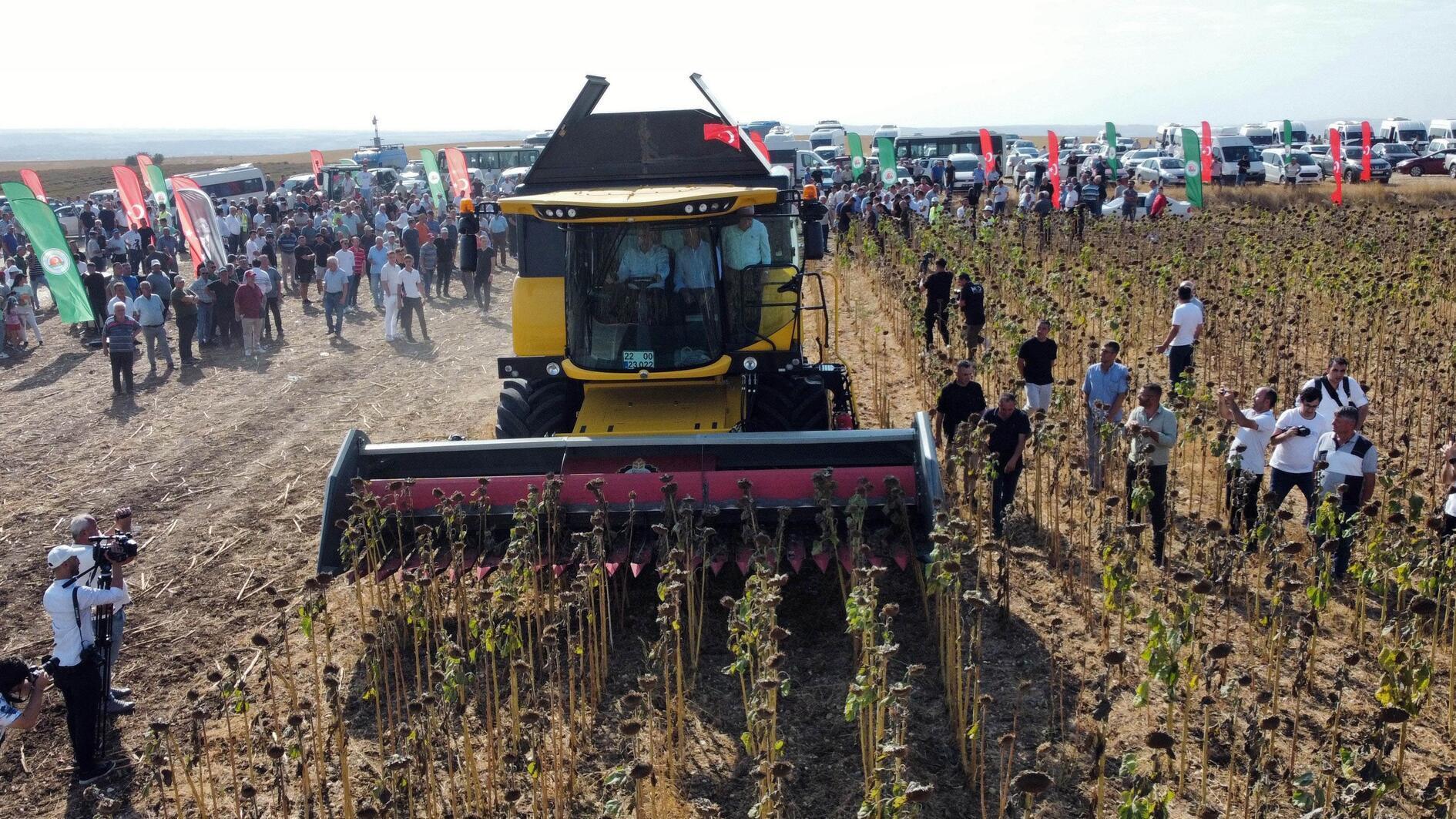
In the northwestern province of Edirne, one of Türkiye’s key sunflower-growing regions, the harvest has begun about 15 days earlier than usual due to extreme heat.
Sunflowers planted across roughly 1.3 million decares have dried prematurely this year as prolonged high temperatures and insufficient rainfall disrupted healthy growth.
Farmers are now using combine harvesters to collect crops earlier than planned, but yields are expected to be significantly lower.
Sunflower cultivation is a cornerstone of agriculture in Thrace — comprising the provinces of Edirne, Tekirdağ and Kırklareli — accounting for roughly 45 percent of Türkiye’s oilseed sunflower production. Within Thrace itself, sunflower is the second most extensive crop after wheat.
Şafak Kırbiç, the chairman of a farmers' union in Thrace, said that high temperatures and drought have negatively affected sunflowers, forcing the harvest forward. “This year, we expect yield losses in about 90 percent of Thrace. Only a few areas with better rainfall will see relatively normal output. Average yields will be far below previous years, and oil content is also expected to be low.”
He stressed that the effects of climate change are being felt strongly, noting that in some areas, harvesting began as early as July 20 — an extremely rare occurrence for the region.
Kırbiç advised earlier planting to make better use of winter rains and avoid peak summer heat.
Farmer Hayrullah Hüdaverdi said severe drought has deeply impacted the crop. “Winter dryness is especially damaging to sunflowers. We have started harvesting, but the picture is not good, yields are between 50 and 100 kilograms per decare,” he said.
Another farmer, Cem Yılmaz, noted that average yields this year are around 60-70 kilograms per decare. “The heat dried the sunflower early, and the harvest started 10-15 days sooner than normal,” he added.